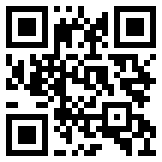This article briefly discusses a widely concerned issue, the literature search problem in the evaluation process of clinical trials of medical devices.
It must be recognized that literature search needs to cover two types of data:
Clinical data related to medical equipment or its equivalent
Data that directly involves advanced technologies related to equipment and/or equivalent devices, benchmark devices, and similar devices and technologies, as well as medical options available for the intended patient population.
If manufacturers have their own equipment and bed data, this is a definite benefit. Literature and data can be reviewed together for consistent evaluation and comprehensive analysis.
According to section MDCG2020-13D: "Clinical trial evaluation of medical devices should clearly state the selection criteria required by applicable regulations. CER should clearly distinguish between two types of data (equipment being evaluated or equivalent, advanced technology, or alternative treatment options).". If these data are not related to any of the above, provide the reasons for their inclusion.
The purpose of literature search is to identify published scientific papers that provide effective conclusions on the safety, performance, clinical trial benefits, and new status of medical equipment. Literature search should be accurately, thoroughly, and systematically documented.
The selection of literature should be objective and reasonable, including all favorable and unfavorable materials.
Therefore, when considering writing a literature search plan, it is important to keep in mind that the selected paper should reflect the intended use of the equipment.
Literature search and screening should include:
Research questions
The database to be used
Terminology to be used
Inclusion/Exclusion Criteria
Search methods for literature
How to ensure data integrity
How to evaluate each data source and its relevance to the devices involved
How to analyze and process data
For more details on this aspect, please refer to Appendix A5 in MEDDEV2.7/1Rev.4.
About databases
Based on the research question and the type of evidence required, some databases can be selected.
The revised Annex 4 of MEDDEV2.7/1 suggests establishing the following database:
PubMed/Medicine: A solid baseline for initiating research
EMBASE: Provides complete information on medical equipment and therapies used in Europe
Cochrane Central Trial Registry: provides complete information on European trials
Medline (PubMed) and EMBASE are leading literature databases, while Cochrane is the primary choice for controlled trials.
About search terms
The search term is generally the product name or its indication, or a combination of both. However, a good approach is to combine them using logical operators. There are three main operators and, OR, and not, which allow you to combine search terms in specific ways to expand or shrink your results. Quotes and parentheses are also useful tools to improve the quality of the search process.
Please always remember that the literature search protocol must be established correctly and well, as it forms the basis for other steps in the clinical evaluation process.
Shenzhen Renni Medical Device Management Consulting Co., Ltd. can conduct systematic literature search and review in accordance with the MDR Regulation (EU) 2017/745. Our team can design a comprehensive literature search protocol and complete document selection and data extraction process. We can obtain clinical evidence from a literature perspective for your new medical equipment to create MDR compliant documents.



